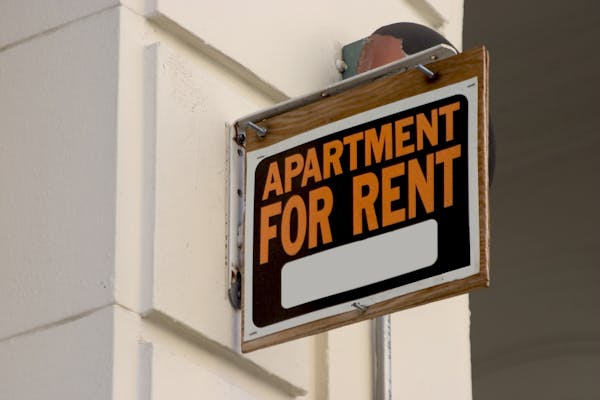Opinion editor's note: Editorials represent the opinions of the Star Tribune Editorial Board, which operates independently from the newsroom.
•••
The housing market has so many data points and moving parts, and is so infrequently in equilibrium, that it's often easiest to oversimplify and declare conditions terrible. It may be why "sky-high" is a favored phrase in articles about rent prices. It may explain why the idea that rent control can help continues to gain momentum.
Some of the latest developments are on the federal level. Last month, the Biden administration announced actions "to protect renters and promote rental affordability." Those mostly revolve around procedures — tenant screening, rules for eviction and the like.
Progressives in Congress think the administration should go "significantly further," in the words of Rep. Jamaal Bowman. The New York Democrat's name was first on the list of signatures on a letter last month to President Joe Biden urging an "end to corporate price gouging in the real estate sector." The other name atop the list was Sen. Elizabeth Warren, and among the signers was Rep. Ilhan Omar of Minnesota's Fifth District.
The letter recommends actions by several federal agencies, notably calling on the Federal Housing Finance Agency to create "anti-price gouging protections" and the Federal Trade Commission to define "excessive rent increases as a practice that unfairly affects commerce." The letter doesn't put a number to "excessive," but the word hints at what could effectively become a national rent control policy.
It's true that rents, like many other prices, have been volatile during the recent period of global inflation. As with inflation generally, rents are moderating at the moment. Year-over-year increases in some markets, as disparate as New York and Nashville, are quite hot. Other markets are starting to see month-over-month declines.
For what it's worth — according to a report compiled by rental-listing aggregator Zumper — the Twin Cities rental market is the nation's 60th most expensive by price, and its year-over-year average rent increase as of January was 3.4% for one-bedroom apartments and 4.6% for two-bedrooms. For comparison, the broad national inflation rate as most recently measured by the Consumer Price Index was 6.5%. Also for comparison, the Twin Cities metropolitan statistical area is the nation's 16th-largest by population.
Amid the short-term flux, there's a broader trend worth noting. According to Moody's Analytics, it now takes 30% of median U.S. income to pay the average rent. That's up from 22.5% in 1999, when Moody's first began tracking. The U.S. Department of Housing and Urban Development defines housing costs above 30% as "rent-burdened," meaning people may have to forgo other necessities.
Another trend worthy of concern is an imbalance in pricing information between renters and increasingly consolidated property management firms that is driven by proprietary algorithms. An October 2022 report by ProPublica (tinyurl.com/rent-algo) detailed the impact.
So there's room for attention to the rental market. Also to income growth and to policies that affect the balance of housing supply and demand. But you'll notice that the language in the letter from the representatives and senators places the blame on those who provide and maintain rental housing and build additional units. That attitude is a problem.
When voters in St. Paul and Minneapolis were considering ballot measures on rent control in 2021 — St. Paul bit down hard; Minneapolis hasn't yet but is salivating — we pointed out that economists almost universally believe rent control to be counterproductive, ultimately hurting the people it's designed to help by discouraging the development of new housing.
We're also aware, as mentioned a few years back on a Freakonomics podcast about rent control, that most people don't think like economists do or even believe them.
We'd urge everyone to think broadly. The federal government has a role in addressing housing trends but should be wary of any policy that would decrease incentives for investment. The same goes for local governments.




![Police investigate a homicide at the 5th and Nicollet Avenue light rail station in Minneapolis, Minn., on Tuesday, Aug. 2, 2022. ] RICHARD TSONG-TAATA](https://arc.stimg.co/startribunemedia/AA653FR7RS6R6G6N2KPYPOEV6U.jpg?w=75&h=75&fit=crop&crop=faces)
